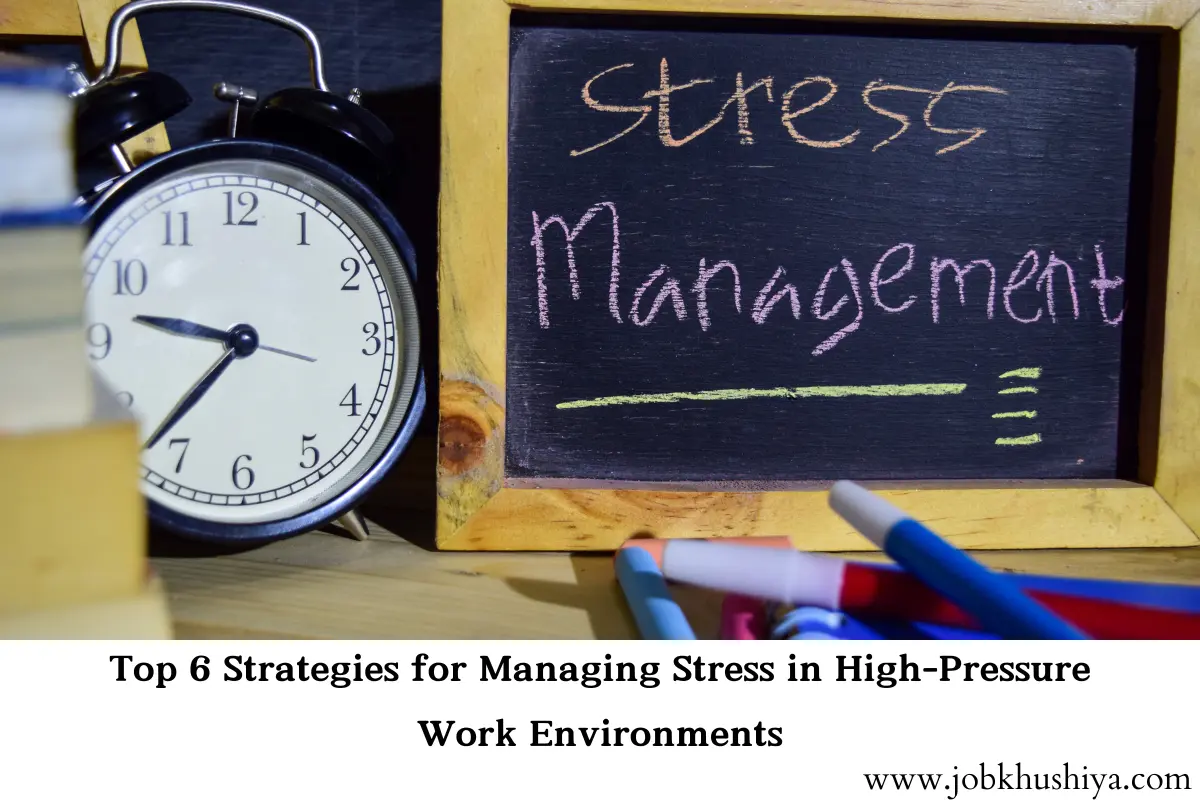Introduction:
In today’s fast-paced world, high-pressure work environments have become increasingly common. Whether you’re in finance, healthcare, technology, or any other industry, the demands of the modern workplace can often feel overwhelming. With tight deadlines, heavy workloads, and constant pressure to perform, stress can easily build up, taking a toll on both your physical and mental well-being. However, it’s essential to recognize that stress is a natural part of life, and there are effective strategies for managing it. In this blog post, we’ll explore various techniques and approaches to help you navigate the storm of stress in high-pressure work environments.
Understanding Stress:
Before delving into strategies for managing stress, it’s crucial to understand what stress is and how it affects us. Stress is the body’s natural response to any demand or threat, whether real or perceived. When faced with a stressful situation, the body releases hormones such as cortisol and adrenaline, triggering the “fight or flight” response. While this response can be helpful in dangerous situations, prolonged exposure to stress can have detrimental effects on our health, leading to issues such as anxiety, depression, and burnout.
Identifying Sources of Stress:
The first step in effectively managing stress is identifying its sources. In high-pressure work environments, stress can stem from various factors, including:
- Heavy workloads and tight deadlines
- Unrealistic expectations from managers or clients
- Interpersonal conflicts with colleagues or supervisors
- Fear of failure or making mistakes
- Lack of work-life balance
- Uncertainty about job security or career advancement opportunities
By pinpointing the specific sources of stress in your work environment, you can develop targeted strategies to address them and minimize their impact on your well-being.
Strategies for Managing Stress:
Now that we’ve identified some common sources of stress in high-pressure work environments let’s explore strategies for effectively managing it:
1) Prioritize and Organize:
One of the most effective ways to reduce stress is by prioritizing tasks and organizing your workload. Start by creating a to-do list and identifying the most important and urgent tasks. Break larger projects into smaller, more manageable tasks, and allocate specific time blocks to work on each one. By having a clear plan of action, you can avoid feeling overwhelmed and stay focused on what needs to be done.
2) Set Boundaries:
In high-pressure work environments, it’s easy to fall into the trap of working long hours and sacrificing personal time for the sake of productivity. However, this can quickly lead to burnout and diminished performance. Setting boundaries is essential for maintaining a healthy work-life balance. Learn to say no to additional tasks or projects when your plate is already full, and establish clear boundaries around your working hours. Make time for activities outside of work that you enjoy and that help you recharge your batteries.
3) Practice Mindfulness and Relaxation Techniques:
Mindfulness and relaxation techniques can be powerful tools for managing stress in high-pressure work environments. Take short breaks throughout the day to practice deep breathing exercises, meditation, or progressive muscle relaxation. These techniques can help calm your mind, reduce tension in your body, and improve your ability to cope with stressors. Incorporating mindfulness practices into your daily routine can have long-term benefits for your overall well-being.
4) Seek Social Support:
Don’t underestimate the power of social support in times of stress. Reach out to trusted colleagues, friends, or family members and share your feelings and concerns with them. Sometimes, simply talking about your stressors can provide relief and perspective. Surround yourself with people who uplift and support you, and don’t hesitate to ask for help when you need it. Building a strong support network can help you navigate the challenges of high-pressure work environments more effectively.
5) Practice Self-Care:
Self-care is crucial for managing stress and maintaining your overall health and well-being. Make time for activities that nourish your body, mind, and soul, such as exercise, hobbies, or spending time in nature. Ensure you’re getting enough sleep, eating a balanced diet, and staying hydrated. Taking care of yourself physically can provide you with the energy and resilience you need to cope with the demands of your job.
6) Develop Coping Strategies:
Finally, it’s essential to develop healthy coping strategies for dealing with stress when it arises. Instead of turning to unhealthy habits like excessive drinking or procrastination, find constructive ways to manage your emotions. This could involve journaling, practicing gratitude, or engaging in creative outlets such as writing, painting, or playing music. Experiment with different coping strategies to see what works best for you, and incorporate them into your daily routine.
Conclusion:
Managing stress in high-pressure work environments is a challenging but essential endeavor. By understanding the sources of stress, prioritizing tasks, setting boundaries, practicing mindfulness and relaxation techniques, seeking social support, practicing self-care, and developing healthy coping strategies, you can effectively navigate the storm of stress and emerge stronger and more resilient than ever before. Remember that stress is a natural part of life, but with the right tools and support, you can learn to manage it effectively and thrive in even the most demanding work environments.
